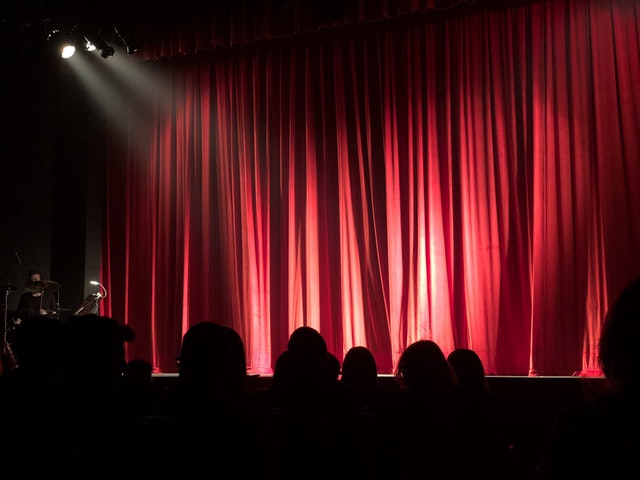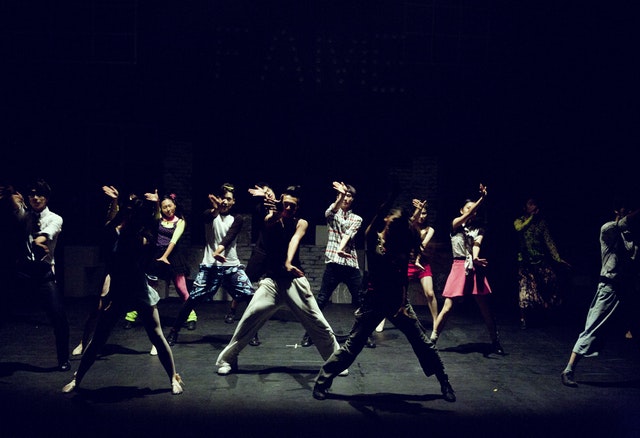by NYFA Instructor Denis McCourt, MFA
So you’re taking an acting class, have a general audition, or just want to hone your craft, and are looking for the perfect monologue. The search is really a three pronged approach:
What type of monologue are you looking for?

As you begin your quest for the words you will spend a large amount of time and energy working on, first, it is best to consider what you are trying to accomplish.
In the world of monologues, you have many broad categories — contemporary-comedy, contemporary-dramatic, classical-comedy, classical-dramatic … and even more broadly, plays versus film/television/online-content (web series).
If you are intending to work on a monologue in an acting class, you should select one from a play. These words have been written to be performed live by an actor on stage. That idea might sound obvious, yet many actors use film and television for their source material. That great dramatic monologue you saw in the latest blockbuster film has music, sound, camera angles, lighting, reaction shots and editing (just to name a few elements) to help make that overall dramatic or funny impact for the audience — plus, you will be perpetually compared to that Oscar-winning performance.
When you find material written to be performed on the stage, it will fare better in your acting class and/or general audition. So, if you have now bought into the idea of plays, you have narrowed your content down from hundreds of thousands to only a few thousand possibilities.
How do you find your connection or hear your voice in the monologue?

This next step is very important in your quest for the perfect monologue.
Let’s say you want to expand the work you are doing in your acting class. You are very funny, which everyone around you reinforces in your work, so now you want to explore your more dramatic skills. One of the hardest concepts about acting that everyone struggles with is the idea of “connection,” or “your voice.” The best way to define this for you is to look back over your lifetime and ask questions.
In the years that you have been on this earth, what has mattered to you? Where did you grow up? Are you a member of the LGBTQ+ community? What cultural and gender identity speaks to you? Are you involved in any social issues or causes? Do you feel drawn to victims’ rights, or religious beliefs? Are you an animal rights advocate? Were you raised on a farm or in the city? In sharing these questions, and by you answering them, you begin to feel a connection and find your voice.
The next step would be for you to find a playwright that shares your connection and voice. If, as in our example, you have already decided that you want to work on a dramatic monologue, the exclusion of comedic writers has narrowed your search from thousands down to hundreds. And if you know you’d like to focus on a woman’s point of view, you have now narrowed that down even further.
The good news is that you are now looking for writers that share your voice and perspective, and once you find them there will be a body of work for you to tap into for source material.
I would strongly encourage you to become an avid reader of plays. In your quest for the perfect monologue, you can also develop your skills as a cold reader by reading the plays out loud –honing yet another skill you will need as an actor!
Where do I begin to look to find the perfect monologue?

Let’s face it: acting is already hard enough as it is to do the work well, and in your career you will sometimes be asked to work on material that is not that great if not bad. If you are paid to do it and are at that stage of your career, you will do it. But when developing your craft, the suggestion is to ride a thoroughbred.
What do I mean by that? If you find the best material, it will help you develop the skills you are working on developing. So, how do I find the best material that matches my voice? Although many are looking for that “golden monologue book written just for you,” you need to know that such a thing does not exist.
Most published monologue books are not good source material, because they are not attached to any story or character development — they are random words written for the purpose of actors, like you, in search of the perfect monologue. And, like you, there are thousands of actors buying that book and working on that same monologue which every casting professional and acting coach has heard over and over and over again. So, all of your efforts are thrown out the window as soon as they hear the first sentence because their inner monologue is; oh, no, not this one again.
So, if you get anything from this article, don’t buy the monologue book.
If you put a little more effort into the quest, it will pay off for you in spades. So, where should you look to find this thoroughbred? There is another three pronged approach: check out theatre awards, the Pulitzer Prize for Drama, and go see live theatre.
- Theatre Awards:

If a writer has won or been nominated for a Tony Award or an Olivier Award, the material is a thoroughbred. When an actor has been nominated for or won a Tony Award or an Olivier Award the material is a thoroughbred. Here is the link to the Tony Award past winners.
If you go to that site, it lists not only the winners but the nominees as well, since the inception of the awards. All of this is great source material. You then can even target playwrights that write about content you are searching for in your perfect monologue. You can even target famous actors that you have been following that are “your type.”
You will find this a very rich resource of great material. Plus, you have narrowed down your material from thousands to hundreds or less.
- Pulitzer Prize for Drama:
This award is a very high benchmark for playwrights, and exploring the winners will provide you with an international selection of original voices of today and years past.
The site not only shares the winners, but also provides you with all of the finalists in any given year. You will see that this list will share some great thoroughbred possibilities in your quest, though you will most likely see some duplicates between the Tony Awards and the Pulitzer Prize sites.
- Live Theatre:

As you can probably guess, live theatrical plays are the best source material for finding the perfect monologue.
If you go see lots of plays, you will find material you will want to work on. The great thing about plays is that they are done all over the place.
You can spend big money and go see major New York and/or Los Angeles productions. You can go to great regional theatres in Chicago, Minneapolis or Atlanta. Or you can go to the many local professional and/or community theatres in cities and towns around the world. Other great resources are colleges and universities.
By seeing actors working on the craft you are developing, you will learn. Even if it is the worst performance you have ever seen, you will be hearing the words of the monologues spoken out loud in the context of the story and character arc.
If you see many plays, especially stories that appeal to you, your chances of finding that monologue increases. You have now narrowed the search from hundreds of thousands down to a few hundred or less and you have some practical steps to make in your quest to find the perfect monologue.
Ready to learn more about acting and deepen your craft? Check out the New York Film Academy’s Acting School offerings.
<